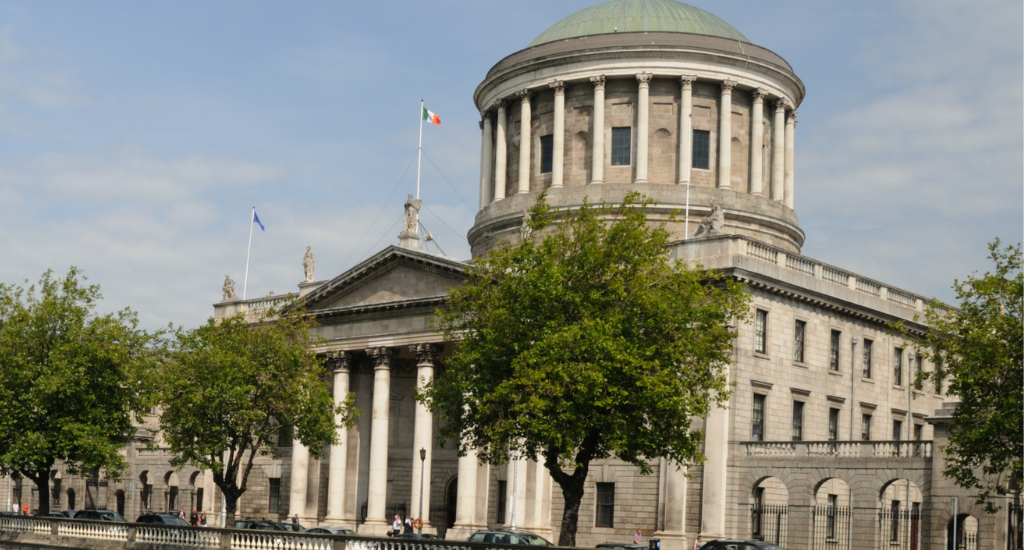- November 29, 2024
- Posted by: Colm Hurley
- Category: News

In a recent High Court decision, Mr. Justice Conor Dignam delivered a landmark ruling providing welcome clarity on the nasogastric feeding under restraint to involuntary patients under the Mental Health Act 2001. The case concerned a respondent with an acute eating disorder who was admitted involuntarily to a hospital specialist unit. As her condition deteriorated, the Health Service Executive (HSE) sought to provide treatment, including nasogastric feeding under sedation and, if necessary, physical restraint under the Mental Health Act.
The legal questions raised included whether such feeding constitutes medical treatment under Irish law and if so, whether it can be applied involuntarily within the framework of the Mental Health Act. This article written by James Burke, Solicitor CKT provides an overview of the landmark ruling.
Background
In September 2023, the respondent, suffering from a severe eating disorder, was admitted to a specialist unit following a life-threatening deterioration in her condition. Despite efforts to treat her as an outpatient, her weight continued to decline, leading to her voluntary admission to an eating disorder unit. Shortly after her admission, she expressed a desire to leave. Concerned about her capacity to make such a decision, her doctors believed she lacked an understanding of her medical risks and required continued in-patient care. This prompted the HSE to initiate legal proceedings for her involuntary detention, including an order to allow nasogastric feeding under sedation or restraint if required to save her life.
Over the course of several months, the respondent underwent nasogastric feeding multiple times under interim court orders. In March 2024, this treatment was removed from her care plan due to improvements in her health, yet the legal questions surrounding nasogastric feeding under restraint continued. The High Court ultimately heard the case to provide clarity on whether the treatment could be considered a form of “treatment” under the Mental Health Act, and whether it required independent review safeguards.
Key Legal Issues
The Court examined three core questions:
- Whether nasogastric feeding qualifies as a form of medical treatment.
- Whether nasogastric feeding, if classified as a treatment, falls within the statutory definition of “treatment” under Section 2 of the Mental Health Act 2001, in the context of an adult who is an involuntary patient under the Mental Health Act 2001.
- If nasogastric feeding qualifies as treatment under Section 2, whether it can be administered involuntarily (and/or under restraint) under Section 57 of the Act.
Statutory Interpretation and Judgment
The Court’s analysis focused on Section 2 of the Act, which defines treatment as any medical intervention for the purpose of addressing a mental disorder under medical supervision. Additionally, Section 57 specifies that patient consent is required for treatment unless the attending psychiatrist determines that the patient cannot provide consent due to their mental disorder and that treatment is necessary to protect their health or life.
Justice Dignam referenced previous case law, such as HSE v MX, advocated for a broad interpretation of “treatment” to include procedures necessary for patient care. However, the Court highlighted that Section 57 lacks explicit safeguards, such as a mandated independent review. Other parts of the Act, like Section 60, provide for a second opinion from an independent psychiatrist for specific treatments, highlighting a gap in oversight in Section 57.
Referring to recent judicial standards in Heather Hill Management Co CLG v An Bord Pleanála and A, B, and C v The Minister for Foreign Affairs and Trade, the Court emphasised that statutory interpretation must be grounded in constitutional and human rights considerations, including those articulated in the European Convention on Human Rights (ECHR). Justice Dignam concluded that if Section 57 were intended to cover nasogastric feeding under restraint, it would require additional statutory safeguards, such as an independent clinical review, which the current text does not include.
Role of Inherent Jurisdiction
In the absence of statutory safeguards under Section 57, Justice Dignam found that HSE could seek relief through the Court’s inherent jurisdiction, where statutory guidance is inadequate. However, because no immediate application for nasogastric feeding under restraint remained at issue, he determined there was no need to exercise this inherent jurisdiction in this case.
Conclusion and Broader Implications
The High Court invited both parties to propose final orders, suggesting that the Court could declare nasogastric feeding under restraint as treatment within the meaning of Section 2 but not under Section 57. This distinction signifies that while nasogastric feeding may be recognised as necessary medical care for involuntary patients, it cannot be administered under restraint without additional protections.
Justice Dignam’s ruling highlights the Court’s commitment to safeguarding the rights of vulnerable adult patients, ensuring that any form of involuntary treatment—especially those involving physical restraint—must be accompanied by rigorous legal and ethical oversight.
It is worth noting that this ruling does not affect children who are involuntary patients and whose cases may continue to be heard in the District Court.
This judgment may prompt legislative review, potentially leading to reforms in the Mental Health Act to address gaps in statutory protections for involuntary treatments, particularly those with complex medical conditions like eating disorders, ensuring their rights are respected within any life-saving interventions.